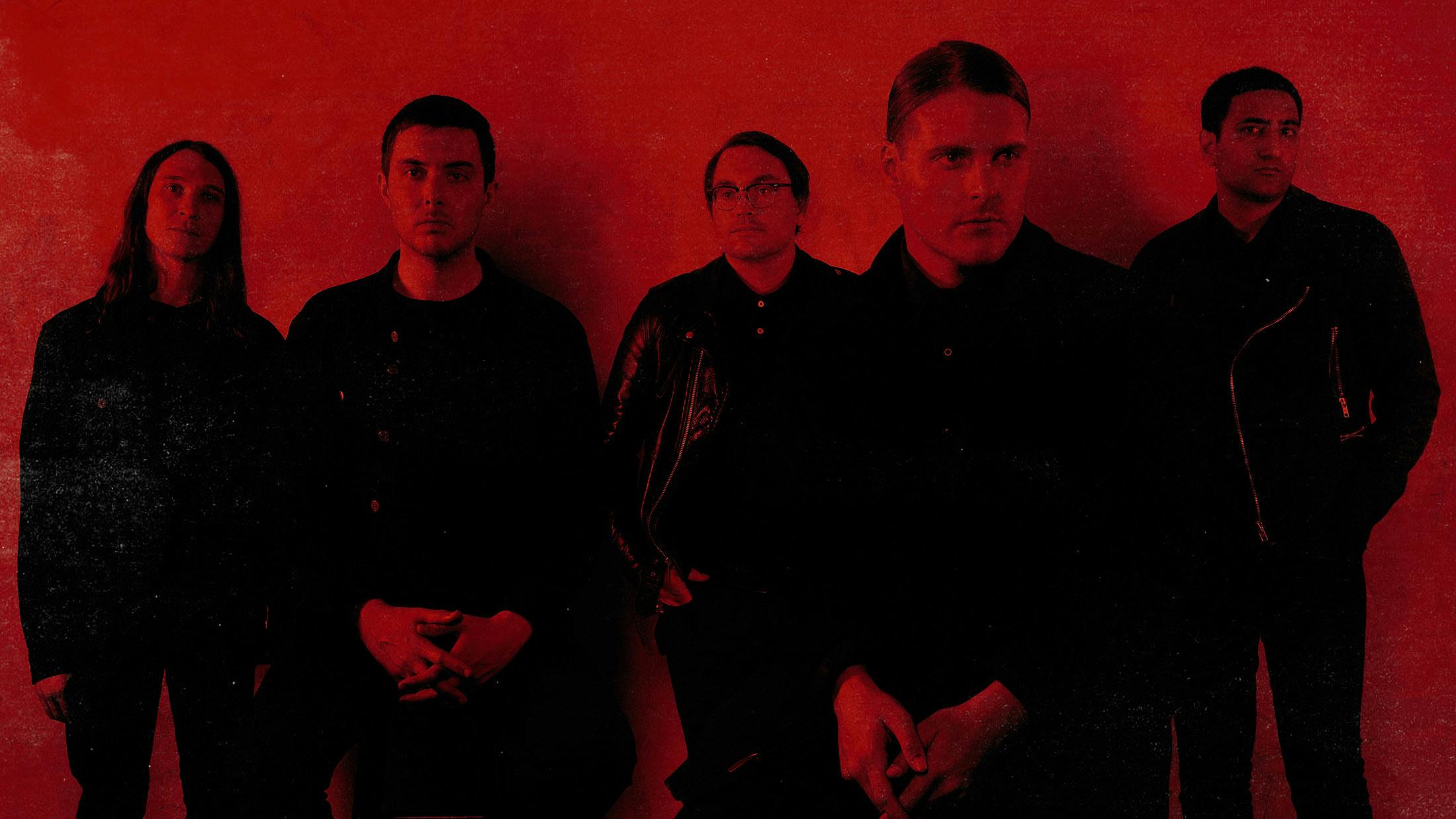Deafheaven - Canary Yellow
First, some back story. Modesto is a small city surrounded by farmland located in California’s Central Valley, just 92 miles east of San Francisco. It was at a public high school here that George Clarke and Kerry McCoy met during their freshman year – that’s year 10 if you’re attending secondary school in the UK – and quickly bonded over a soaking wet metal T-shirt.
“High school was vastly overcrowded but the group of alternative kids was very small,” says Kerry. “I think it was after winter break and me and my loser friends saw George sitting outside in the rain. I remember thinking that was so ridiculous. He was staring into space wearing this Slayer T-shirt and had fishnets on his arms. I was a punk guy who got into Slayer because of their hardcore influence, so we ended up talking. He said he liked my Dead Kennedys patch on my jacket, and that was essentially it.”
“Band merch comes in really handy to help identify your peers,” adds George.
Not long after, the pair were part of a grindcore band called Rise Of Caligula, releasing an EP and full-length album in the space of two years.
“There’s not a lot to say about that band other than it was our first go at stuff and served a purpose in how to operate as a band,” says vocalist George with muted enthusiasm. “In my head, it’s very much on par with having a high school band.”
The lure of San Francisco’s night life drew the pair like excitable moths to a bulb, and they would regularly make the somewhat considerable journey to go to shows at the notoriously militant punk venue Gilman Street or the underground club Burnt Ramen, which Kerry describes being similar to Gilman “but with less rules”. It wasn’t long before they’d made firm plans to leave Modesto behind, and eventually found themselves sharing a room in a house in San Francisco’s Upper Haight area, along with 14 other people. Want a quiet night in? Jog on.
“Everyone was really poor, but it was a crazy party house,” remembers George. “There were parties, fights, cops getting called. When people have those wild college experiences, this was our college.”
As their move coincided with a recession, telemarketing jobs were their only way of scraping together the $500 a month required to live in such palatial digs. As their nebulous shift work restricted to 15 hours, Kerry remembers having a lot of free time and no money to entertain himself, so passed the time playing his father’s nylon string guitar, just one of the few possessions he’d brought with him, along with a bag of clothes and a bike.
“Out of boredom and being broke, I started writing all these songs,” explains Kerry. “Our old band was done, so George said we should start a new one.”
Naming their project Deafheaven – partly in reference to Reading shoegazers Slowdive, although the phrase appears in William Shakespeare’s Sonnet 29, a pithy moan about being an outcast – the duo recorded a demo for $500 with producer Jack Shirley (an amount they struggled to pay back, but the band have kept him on board for subsequent releases). Kerry says their big plan was to play house shows and “that would be their thing”, and pushed cassettes and download links to their favourite blogs, purposely omitting any information or photos to get honest feedback on their efforts. “We were convinced that if people saw us they’d be quick to judge the music,” says George, who clearly hasn’t ever worn corpse paint in a Nordic forest.
The demo caught the attention of Converge frontman Jacob Bannon, who signed Deafheaven – having since fleshed out their line-up to a quintet – to his Deathwish label by the year’s end and released their full-length debut, Roads To Judah, several months later.
Sunbather quickly followed, and in the blink of an eye, the previously anonymous band found themselves featured in magazines and on websites across the world.
“It was everything I ever wanted my whole life,” says Kerry. “I remember telling my dad how cool it would be if I could just work at McDonald’s and be in a band. We’d dedicated our lives to this thing and kinda accepted that it would never have been anything. So when all that happened, it was literally a dream come true. We used to ruin relationships with girlfriends, I’d lose jobs, all that stuff because we liked to do it and spent what money we had to do it. It was surreal, like we were in The Matrix or something.”
“It was the last thing we expected,” adds George. “To say we didn’t want that would be a lie. Our whole motto has been to just put out records and go on tour. That’s all we wanted to do. The response to Sunbather opened doors for us, like playing Coachella and with bands we grew up listening to. It was crazy.”
Unlike his bandmate, who learned never to read the comments, George would let his curiosity get the better of him and scour the forums and silently observe the arguments unfolding online about his band.
“Back in the day, I always looked on the forums,” says the vocalist. “I saw a lot of discussions and takes on what we were doing, but that blind hatred to me is really tired. I used to pay attention to that and saw just about everything negative that can be said about and us, and at this point I don’t care.”
